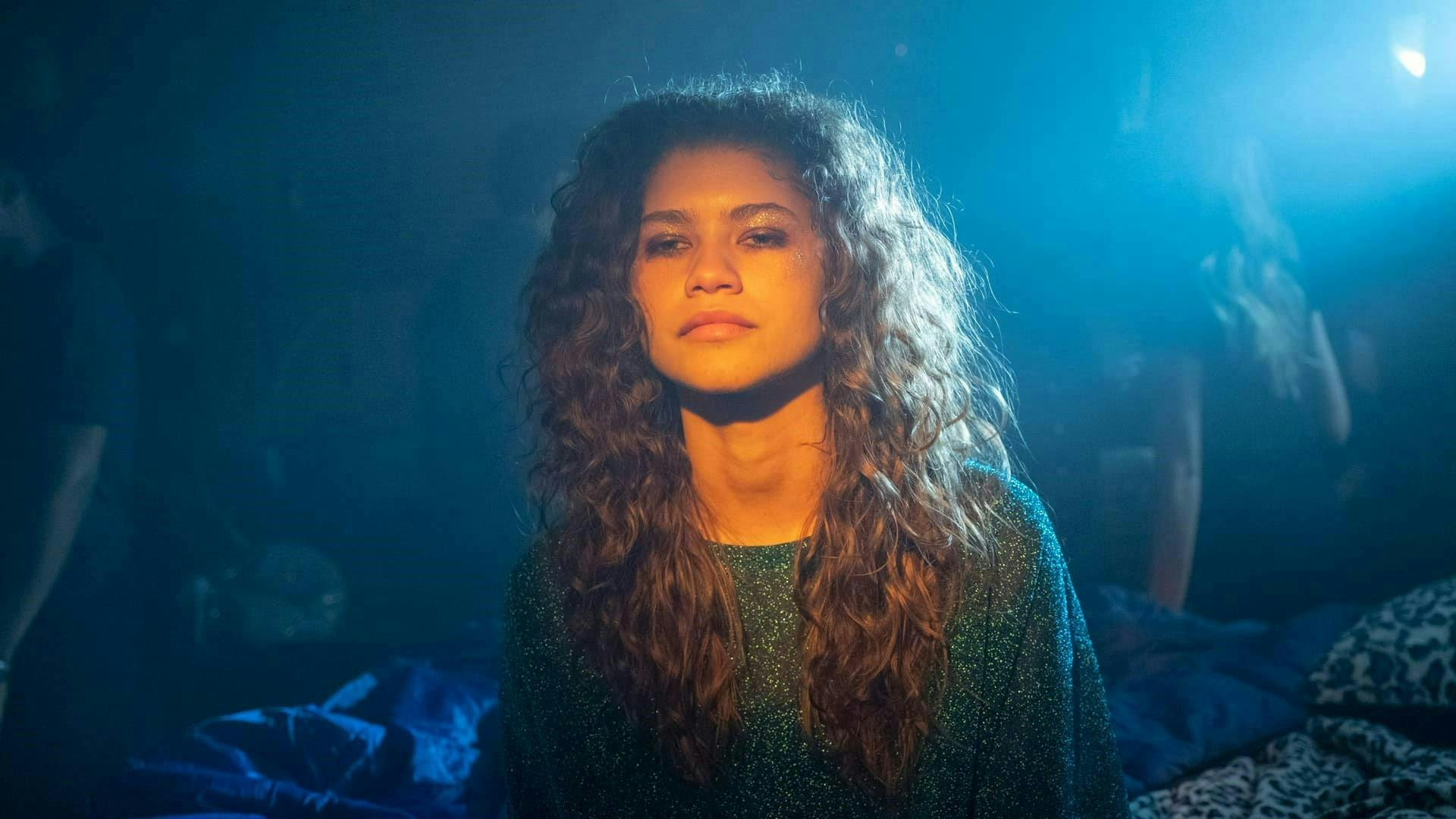
This article on disclaimers in media on health health will discuss heavy topics like drug use, sexual violence, abuse, alcoholism, depression, anxiety, self-harm, suicide, and more. Please stop reading if any of these themes may be potentially triggering to you.
Before the premiere of the second season of ‘Euphoria’ earlier this month, Zendaya (who plays Rue) took to Instagram to remind audiences of the mature themes of the show. “I know I’ve said this before, but I do want to reiterate to everyone that Euphoria is for mature audiences,” says the actress in a text post.
“This season, maybe even more so than the last, is deeply emotional and deals with subject matter that can be triggering and difficult to watch. Please only watch it if you feel comfortable. Take care of yourself and know that either way you are still loved and I can still feel your support.”
It is no surprise to ‘Euphoria’ fans that the show carries weight when it comes to depiction and discussions of said triggering topics. As a matter of fact, a disclaimer warning audiences that the show has “depictions of drug abuse, very strong language, some strong violence, scenes of a sexual nature and strong images of nudity from the start” was even flashed on screen before the first episode premiered.
And this is all part of HBO’s effort to aid audiences with safe media consumption. The deal? To air trigger warnings and resources for help in the form of TV bumpers before the start of every mature show or film. With help from the National Alliance of Mental Health (NAMI), this initiative first ran with HBO’s first seasons of ‘Euphoria’ and ‘Barry’, and many shows to follow.

Zendaya (who plays Rue) on ‘Euphoria’
“HBO has always been at the forefront of telling stories featuring complex characters, some of whom deal with mental illness, from ‘The Sopranos’ to ‘Euphoria’, encouraging more conversation around the different facets of mental health,” says vice president of brand and product marketing at HBO – Jason Mulderig to Variety. “We are not saying ‘viewer discretion is advised.’ We are saying ‘viewer conversation is encouraged’.”
According to a study conducted by the British Board of Film Classification in 2021, 64% of teenagers value the inclusion of disclaimers in triggering media as it helps them protect their own mental health (40%) and make informed decisions on what to watch (51%). After all, Gen Z and young millennials do make up a majority of such show’s target audiences due to its trending and scandalous content, warnings aside. And on top of that, 78% of Gen Z viewers consider the media industry influential in showcasing mental health issues responsibly.
Back in 2017, media consumers were taken aback by the numerous graphic scenes from Netflix’s ‘13 Reasons Why’ depicting bullying, substance abuse, self-harm, and suicide surrounding Hannah Baker’s death. Some even took to social media to condemn the show for glorifying and romanticising her suicide. The main controversy behind this piece of media, however? Its lack of content warnings before its premiere caused audiences to go in blind to the experience.
Just this week, the tragic case of 15-year-old Bella Herndon was finally brought to court as her father blamed the show for his daughter’s suicide in 2017. John Herndon accused Netflix of using algorithms to target and manipulate vulnerable children into watching highly dangerous and mature content. He argues that Bella had taken her life “as a result of the tortious acts and omissions of Netflix that caused, or at least substantially contributed to, her suicide.”
Besides the case of Bella Herndon, figures also show that there was a 28.9% increase in the number of suicides in America alone following the premiere of ‘13 Reasons Why’, with one of the conclusions from the study being that children and teenagers are extremely vulnerable to the media they consume. “All disciplines, including the media, need to take good care to be constructive and thoughtful about topics that intersect with public health crises,” says Lisa Horowitz, a staff scientist at the National Institute of Mental Health and co-researcher of the study.
Following the mess of its first season, the show has since added warnings before the start of its other seasons. “13 Reasons Why is a fictional series that tackles tough, real-world issues, taking a look at sexual assault, substance abuse, suicide, and more,” says the show’s cast members as they address audiences in a video before each episode. “By shedding a light on these difficult topics, we hope our show can help viewers start a conversation.”
In light of all the detrimental repercussions from the lack of safe content warnings in media back then, it’s clear that such disclaimers are extremely important in safeguarding the youth and protecting the mentally vulnerable from potential and future forms of harm. No matter how intriguing a show or film may be, always consider your mental health first before consuming said media.







